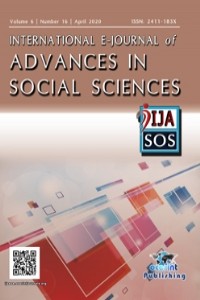Abstract
References
- Gotchina, L.V. International legislation in the field of prevention of drug-related crimes committed by minors, youth and in relation to them. Entrepreneurship and Law. Information and analytical portal. Retrieved from http://lexandbusiness.ru/
Abstract
Drug-related crimes as a type of crime have several specific features. These features include the fact that crimes in the field of drug trafficking are a separate type of crime, and the process of narcotization, as a necessary consequence of these crimes, becomes a factor provoking the commission of other crimes, which determines the increased danger of this crime. Another feature can be considered its internationalization, which points to the problems of combating drug crime in the international arena. Thus, it is necessary to study not only the most effective measures to combat drug crime implemented in the Russian Federation, but also turn to international experience. As the analysis of measures to counteract the domestic and international nature of drug-related crimes shows, there are ample problems that need to be addressed based on the development of both the world community and the national specificity of the state. It should be noted that at the present stage, this topic is being raised by scientists of various territorial levels, taking into account such drug trafficking strategies as prohibitive, legal, or intermediate.
This article analyzes the criminogenic factors of drug-related crimes inherent in different countries in order to identify the most effective countermeasures. The problems of international cooperation in the suppression of manifestations of a drug crime are identified.
The goal is achieved by solving the following tasks:
- To analyze the multi-faceted manifestations of drug-related crimes;
- To investigate the criminal factors of a crime relevant to the entire world community;
- To characterize domestic and foreign experience in combating drug-related crimes;
- Identify the problems of such countermeasures and suggest recommendations for overcoming them.
The methodological basis of the research is constituted by such general scientific methods as the dialectical, systematic method of research, analysis, synthesis, induction, deduction, analogy, and others, as well as such specific scientific methods as historical-legal, comparative-legal, formal-legal, structural-functional, statistical. In work, the authors relied on the results of research by Russian and foreign lawyers, sociologists, psychologists in the field under consideration.
The results of the study can be used in designing the international strategy for combating drug-related crimes in order to minimize its negative consequences, as well as in research activities, including in teaching activities in the preparation of lectures and practical classes in the field of criminology.
Keywords
drug-related crimes, narcotization, prohibitive strategy, legal strategy, intermediate strategy
References
- Gotchina, L.V. International legislation in the field of prevention of drug-related crimes committed by minors, youth and in relation to them. Entrepreneurship and Law. Information and analytical portal. Retrieved from http://lexandbusiness.ru/
Details
| Primary Language | English |
|---|---|
| Journal Section | Research Article |
| Authors | |
| Publication Date | September 10, 2020 |
| Submission Date | March 17, 2020 |
| Published in Issue | Year 2020 Volume: 6 Issue: 16 |
Contact: ijasosjournal@hotmail.com
The IJASOS Journal's site and its metadata are licensed under CC BY
Published and Sponsored by OCERINT International © 2015- 2025

